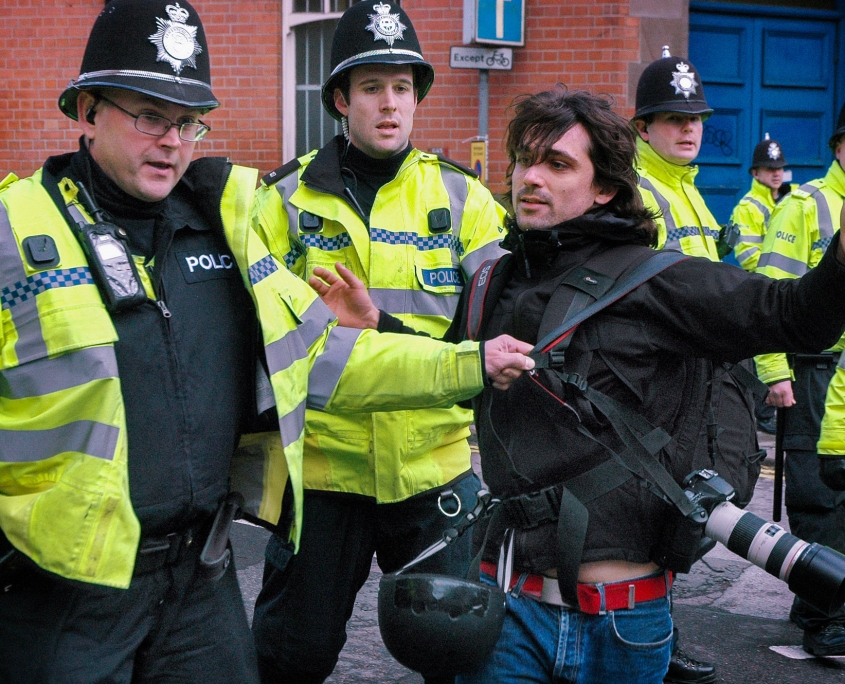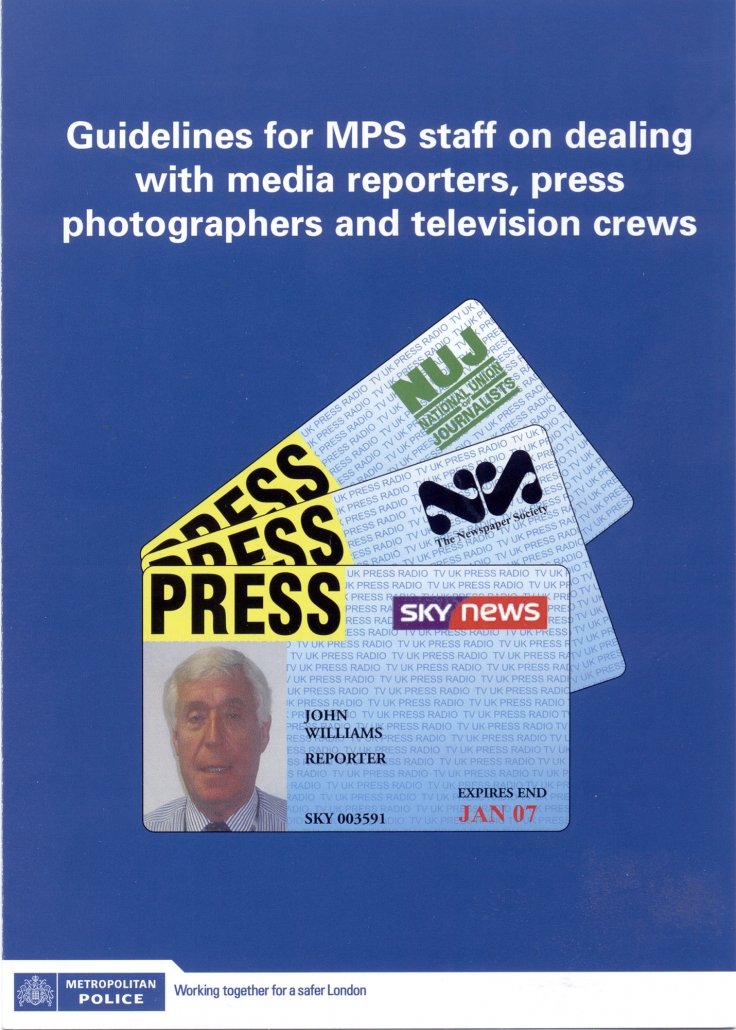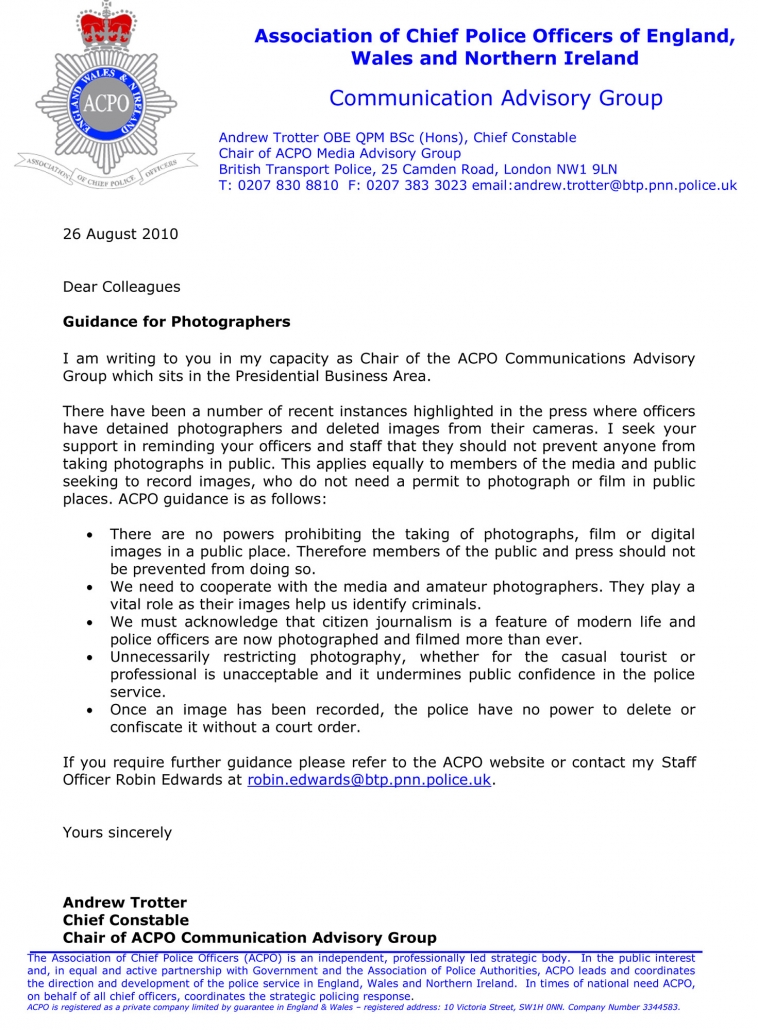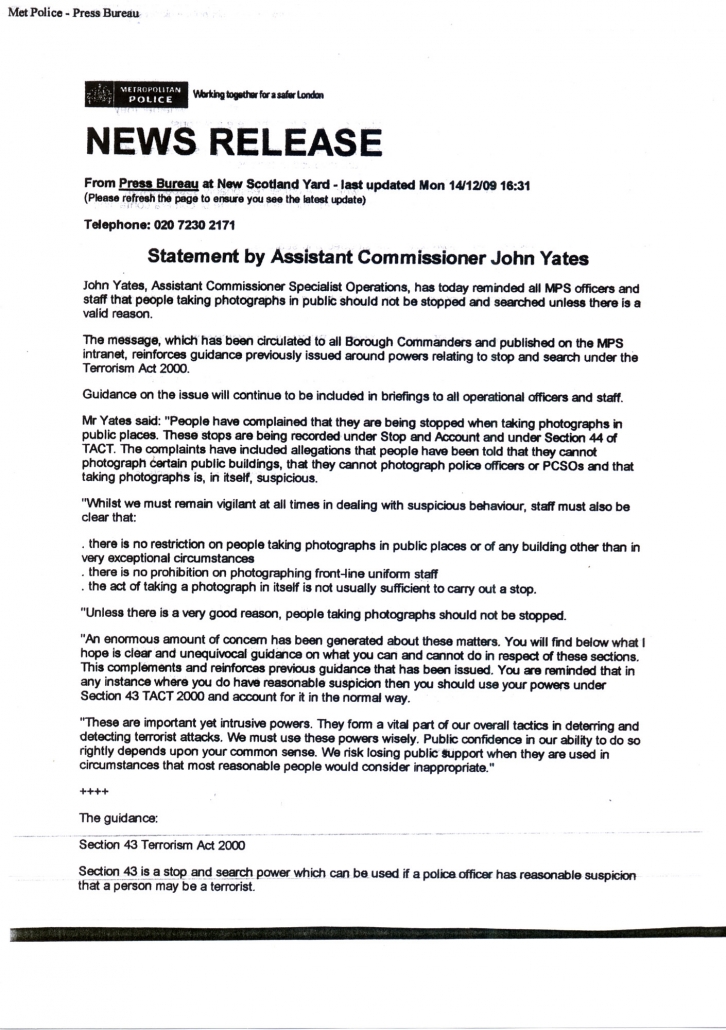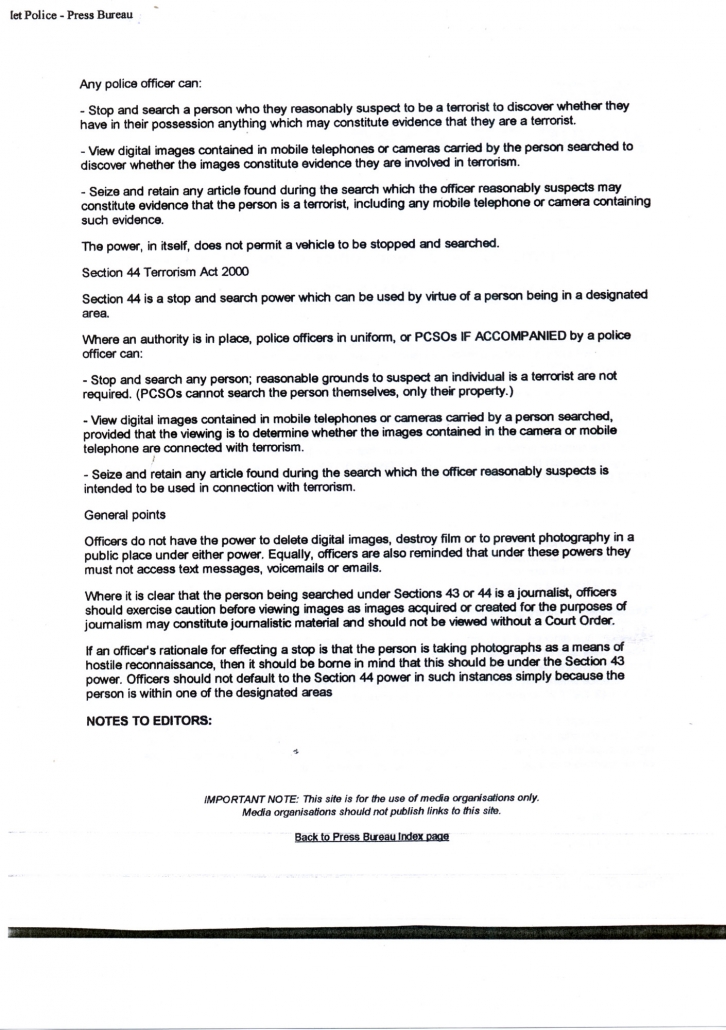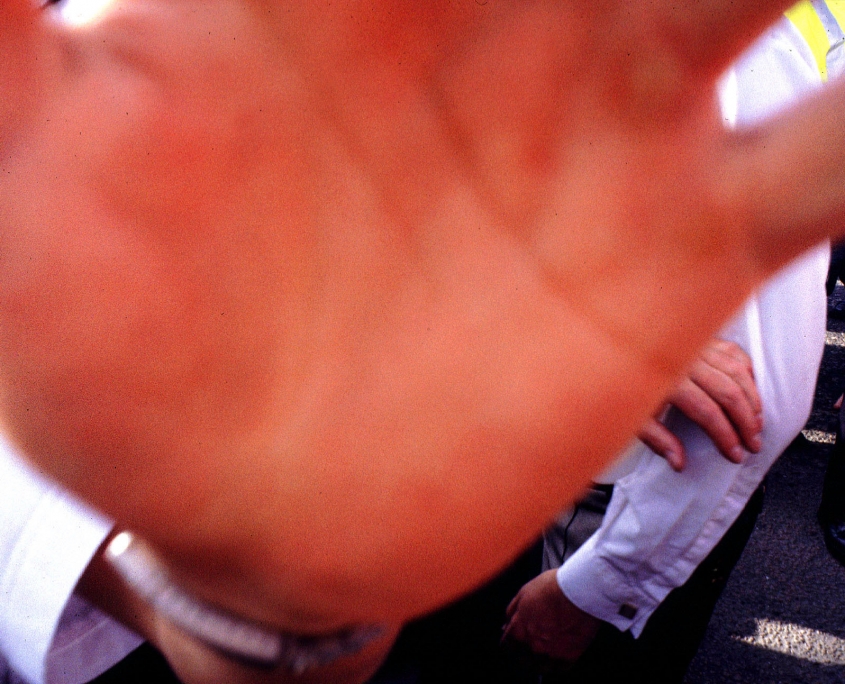Photography Advice and Guidance
In spite of assorted agreements with the police, officers continue to be obstructive to photogaphy in the street. Although the trend of photographers getting hassle go’s up and down over time, It has always been thus!
The object of this page is to strengthen your knowledge regarding issues surrounding photography, both in ‘actions’ and subjects in a public place. In situations whether your photographing an action / demonstration, or people and buildings in the High Street …. it has become quite problematic and increasingly so. I think 4 main issues have a bearing here.
- Policeman and assorted officers don’t want to be photographed, it might show some wrong-doing.
- People involved in direct action, a photograph might be evidence against an individual breaking the law.
- The notion that some believe people have a right of privacy in a public place.
- The threat of terrorism and a photographer might be conducting ‘hostile reconnaissance’.
So, I think to start with, and since we are dealing with those interested in the sort of subjects visitors might be interested to know about ….. I should say the first consideration is:
IS IT LIKELY THAT A PICTURE I TAKE, WILL PROVIDE EVIDENCE TO PROSECUTE ANYONE?
I struggle with this all the time and it is central in my mind when photographing activities. It might be argued that it is safer just to take pictures on your holiday and leave a camera at home otherwise. I don’t agree.
Those of us who are serious about this media have a more positive motive.
Firstly, we sometimes moan about the lack of coverage, issues that concern us don’t get in the main stream media, or, when they do are monstered and rubbished.
Many of us have been involved in the ‘alternative media’ in a variety of forms to try and fill this gap. It was a prime objective of the Indymedia Network Project , and other assorted outfits. Should people not have photographed, filmed, recorded or written about events themselves in recent years, vast chunks of history would not have been told or known about. For future activities, I think it is important to show what has been possible in the past. Our coverage should be inspiring to others in the future. Not just the near future either, photographers both professional and casual contribute to our ‘social history’. I want my ‘tribes’ included in this knowledge.
Secondly, having said I don’t want to provide evidence to prosecute anyone ….. I do have ‘form’ for providing picture to defend people wrongly accused. In fact, this is where I started during my festival and traveller days. Authorities and policemen in particular are given training in the aspects of how to give authoritative evidence in court. Many times have I seen this ‘blown out of the water’ by a witness giving evidence and showing a series of photographs or video demonstrating the officer lying through his teeth. It’s not only photographs of course, you should make written notes of times, date, places. [who, what, were and when]. Voice recording equipment is much cheaper and available now, dicta-phones, mobile phones and the like can be used covertly or overtly.
Now, bearing all the above in mind, you have to be aware of the pressures there are now, when photographing your interests in a public place. As far as I know, there are only two offences that are committed where you can be properly arrested. It is an offence to take photographs or collect information, likely to be of use in terrorism ‘hostile reconnaissance’ and you are not permitted to take an indecent photograph of a child.
As devices to try and prevent you, the police have been know to threaten:
- Harassment, causing alarm and distress.
- Obstruction [obstructing and officer in the execution of his duties].
- Seizing equipment and media that might assist in the investigation of crime. [PACE 1984].
- Stop and Searches under sections 43 of the Terrorism Act 2000
- Collecting info on police for terrorism purposes [Sect58a Terrorism Act 2000]
The Sect 58a is still one of the most dangerous, since it is in so many peoples mind, that it is an offence to photograph policemen. IT IS NOT. The Metropolitan Police, Photography advice [below] makes it quite clear that this is not true [unless you are a terrorist of course]. They have to have reasonable suspicion that you are.
note: having read any of this, you will probably know more than the average policeman, PCSO or CSO. Their training around these issues is truly terrible. So many times when you get told you can’t take pictures, they try and prevent you, or, demand to see or delete them, they are ignorant of the law. You might consider downloading and printing the “Letter from Chair of Police Communication Advisory Group” and keeping it with you to show them. I think it is probably on a minority of occasions when police and non-warranted officers try to obstruct you for their own reasons, it’s mostly ignorance {although I might be wrong of course}.

